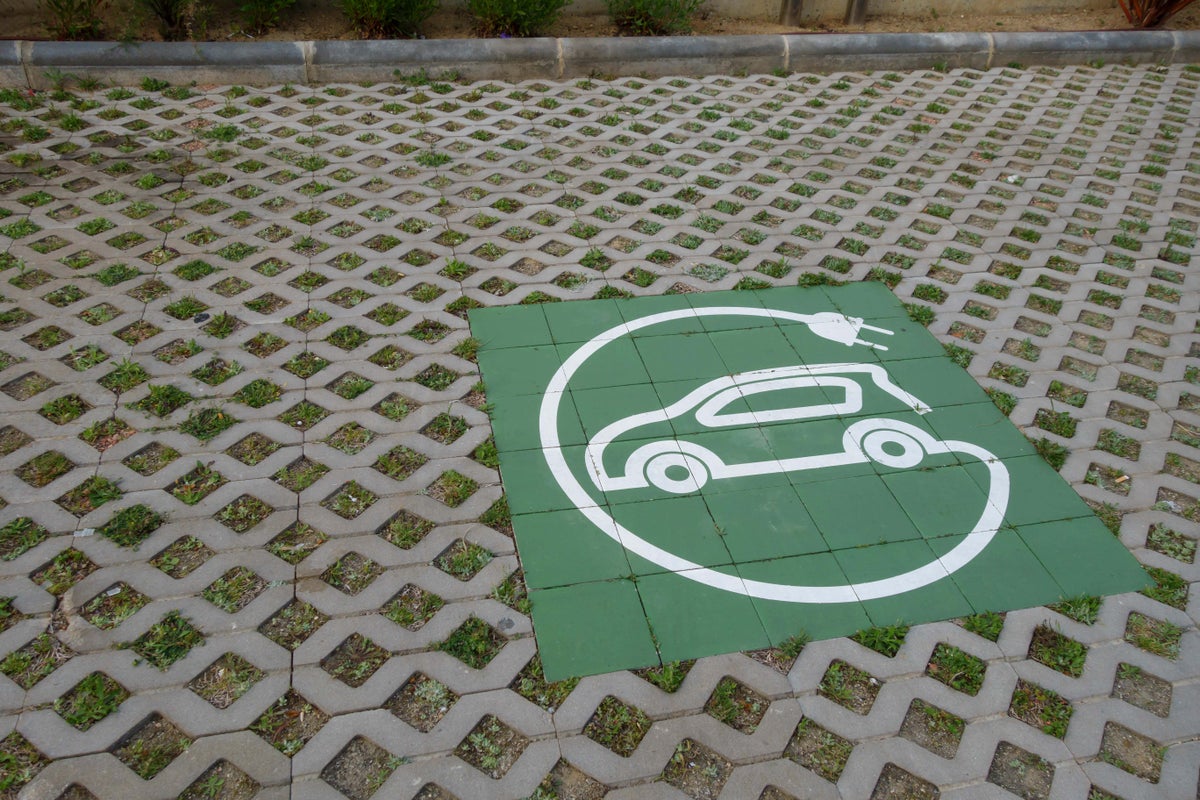
The growing number of electric vehicle charge points and outdoor restaurant tables is making it harder for disabled people to move around their communities, according to a new report.
This is contributing to “pavement clutter” which requires “better management”, the six-month study by walking and cycling charity Sustrans found.
Department for Transport (DfT) figures show 8,680 public devices for electric vehicle charging were installed in the UK last year.
Pavement space has also been taken up by the increased popularity of al fresco dining sparked by the coronavirus pandemic.
Some disabled people who contributed to the report said they fear tripping or falling when avoiding obstacles on pavements, with parked cars a particular concern.
Many also revealed they are reluctant to leave their homes on bin days.
An Ipsos survey of more than 1,100 disabled people indicated that 41% often experience problems reaching their destination on a typical walking or wheeling journey due to accessibility barriers.
Sustrans accused local and national governments of a “lack of dialogue” with disabled people about decisions which affect how they get around their local area.
The charity’s chief executive, Xavier Brice, said: “Our report clearly demonstrates that understanding the barriers disabled people experience getting around their neighbourhoods is imperative in creating an equitable society.
“Putting disabled people at the centre of discussions about how we plan and create spaces where we can all move around easily and safely is vital.
“The UK Government must listen and take action to create places planned around people, not cars.”
One of the measures called for by Sustrans is a UK-wide ban on pavement parking, which is currently only prohibited in London.
Everyone is equally entitled to rely on safe and inclusive pavements, and now is the time to act.— Xavier Brice, Sustrans
Some 73% of disabled people surveyed saying this would help them walk or wheel more.
A Government consultation on introducing a London-style ban throughout England closed in November 2020, but no new legislation has been introduced.
Mr Brice said: “Everyone is equally entitled to rely on safe and inclusive pavements, and now is the time to act.
“The findings of our inquiry are clear. More must be done to make our towns and cities more accessible, inclusive places that people want to live, work, and move around, for the benefit of everyone.”
Sustrans’ study was carried out in partnership with disabled persons organisation Transport for All, and funded by charity Motability.
Transport for All chief executive Caroline Stickland said: “Not only does this give the Government a uniquely clear and actionable picture of what we as disabled people need to make walking and wheeling more accessible, it provides a blueprint for how our community must be engaged with for every mode of transport going forward.”
A DfT spokesman said: “Everyone should have equal opportunities to travel.
“We’ll continue to work hard to make our streets more accessible, and we’ll continue to work with local authorities and charities to ensure pavements remain clear wherever possible.”







